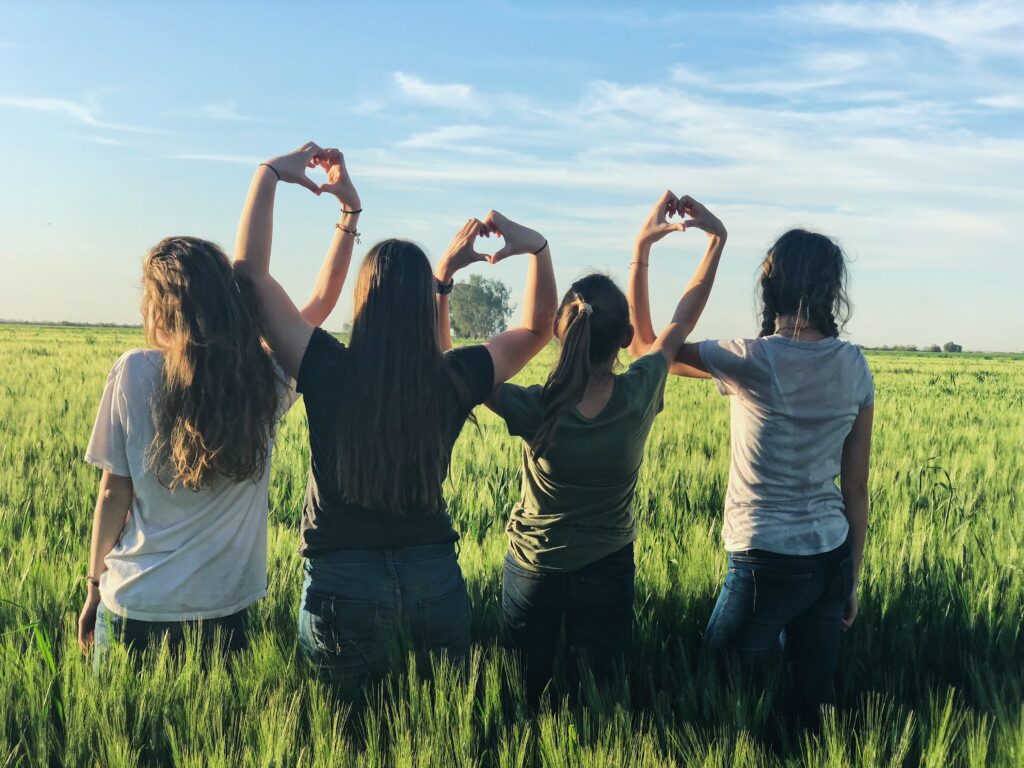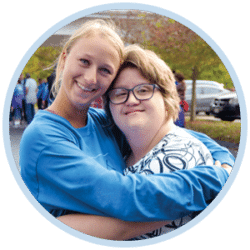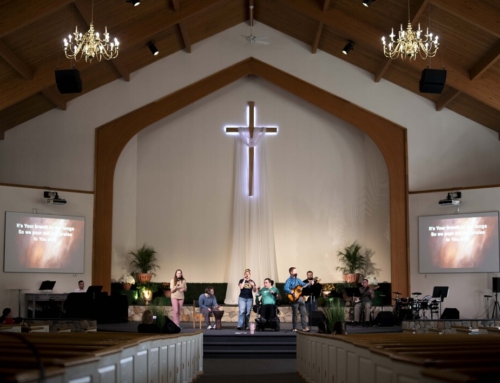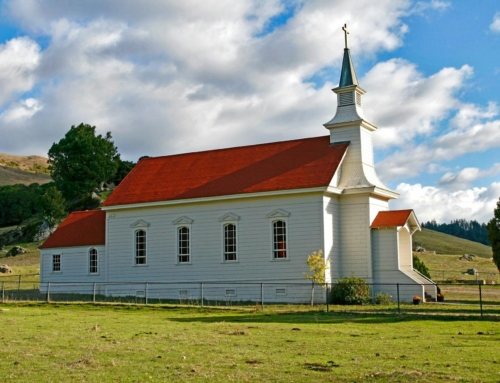Friendship

Friendship is one of those things that is so commonplace, it becomes hard to define. You know it when you see it, but strict definitions are hard to come by. The fact that friendship comes in degrees highlights this well. We have “best friends,” “family friends,” “school friends,” “work friends,” and “friends for life.” What’s the cutoff between “acquaintance” and “friend?” Someone you’d say “hi” to if you saw them in a coffee shop? Someone you’d give a kidney to? Someone you regularly have over for dinner? The definition is elusive.
But friendship is an important concept, especially in the church. Perhaps we should start with the basics… How do friendships form?
C.S. Lewis put it well when he said, “Friendship … is born at the moment when one man says to another ‘What! You too?’”
Mutuality is the intuitive foundation of friendship. For children, this mutuality might be as simple as being the same size and going to the same school. Even among adults, the initial “spark” of friendship is often quite surface level. A shared interest, workspace, or taste in music might all get people talking. But friendships cannot be sustained on something so insubstantial as music tastes. Friendships deepen and mature, as Scott Sauls puts it in his book Befriend, through “reciprocal transparency, vulnerability, love, and loyalty.”
Friendship is a two-way street.
If mutuality is what starts friendships, and reciprocity is what deepens friendship, how do we create opportunities for friendships to form in a church setting for people with disabilities?
Emphasize what is in common.
It is so easy to see someone with an obvious disability and see the disability first and foremost. Disability often makes life experiences very different. But from a biblical perspective, there are two huge things every believer has in common.
1. We all need Christ.
2. We all need each other.

Jesus is the great equalizer. Whether we walk or roll to the foot of the cross, we find ourselves in mutual need.
If the Father has called someone “son” or “daughter,” if Christ has died for them, and if the Holy Spirit has filled them and equipped them for the work of ministry… the differences a disability brings shrink in comparison.
This, more than anything else, provides fertile soil for friendships to form. But when these similarities are overshadowed by differences (real or perceived), friendships will flounder. Even someone who believes these truths about what we all have in common may still be blocked from forming a friendship with someone with autism if they believe a lack of eye-contact communicates a lack of interest in relationship. They might believe that someone who is non-verbal has nothing to say. They might assume that someone in a wheelchair would be more comfortable with “people like them.”
Challenging these wrong assumptions clears the soil of rocks and weeds that can choke friendships before they have a chance to root and grow.
Friendships can’t be forced, but they can be fostered. Preparing the environment for friendships to flourish in the church requires several things, including:
- Teaching on a biblical theology of disability.
- Modeling acceptance and welcoming.
- Creating space for people with disabilities to be with their typical peers.
While mutuality is the foundation for friendship, and reciprocity deepens it, differences are what enrich our friendships! We do not need to pretend that we are all the same. While no one is defined by their disability, it is a part of what makes them who they are.
1 Corinthians 12:16-20 (NIV) puts it this way: “And if the ear should say, ‘Because I am not an eye, I do not belong to the body,’ it would not for that reason stop being part of the body. If the whole body were an eye, where would the sense of hearing be? If the whole body were an ear, where would the sense of smell be? But in fact God has placed the parts in the body, every one of them, just as he wanted them to be. If they were all one part, where would the body be? As it is, there are many parts, but one body.”
Christian friendship is founded in our common need for Christ and community. It is sealed by the Holy Spirit. And it is enriched by our differences. Seek the friendship of people with disabilities because, in so doing, you will more fully discover the heart of Christ.
You can’t force friendships to form. But like a good gardener, you can prepare the soil, clear out weeds, and water the plants. Find out how you can prepare the culture of your church to give friendships their best chance to flourish by watching this 8-minute video from the Joni and Friends.

Connect With Our Team!
Do you have questions about what disability ministry at your church looks like? We would love to hear from you!
Email us at [email protected] or by calling 818.707.5664.


